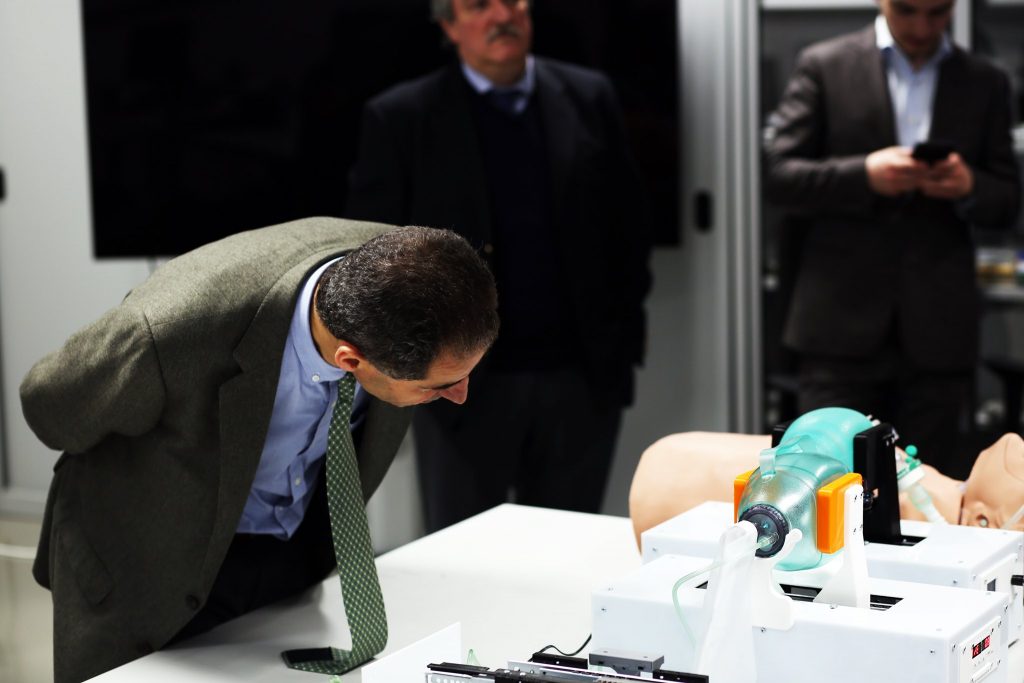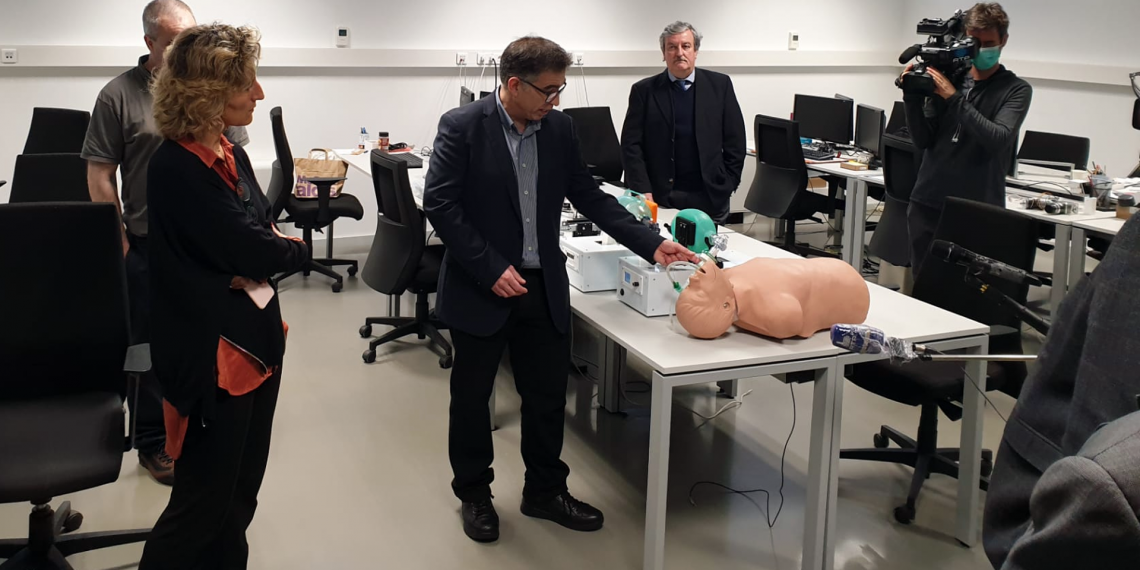On April 7, INESC TEC and the Faculty of Engineering of the University of Porto (FEUP) welcomed the Minister of Science, Technology and Higher Education (MCTES), Manuel Heitor, the Minister for Labour, Solidarity and Social Security (MTSSS), Ana Mendes Godinho, and the Minister for Territorial Cohesion (MCT), Ana Abrunhosa. The delegation had the opportunity to learn more about INESC TEC’s projects to fight against the COVID-19 pandemic.
The visit began at INESC TEC’s Robotics Laboratory, at FEUP, and the visitors were able to watch the PNEUMA emergency ventilator in action – thanks to the presentation and demonstration by Nuno Cruz, researcher at the Centre for Robotics and Autonomous Systems (CRAS).

PNEUMA is a low-cost and easy-to-assemble pandemic ventilator with a self-inflating bag, which aims to support Portuguese hospitals face the new coronavirus. A consortium led by INESC TEC and FEUP developed this device, and it should reach the first national healthcare units by the end of the month, through ARS-Norte.
Still at FEUP facilities, António Paulo Moreira – Centre for Robotics in Industry and Intelligent Systems (CRIIS) – presented a robotic platform that enables the development of an exploratory project for a robot-nurse. This is one of the many applications of robotics in the healthcare area made in INESC TEC – presented by the coordinator of CRIIS at the beginning of the second part of the visit, which took place at INESC TEC’s headquarters.
Vice-Rector Pedro Rodrigues presented several university initiatives, namely the production and distribution of individual protective visors, led by the University of Porto (U.Porto) with the support from the School of Engineering of Porto (ISEP), the Institute of Science and Innovation in Mechanical and Industrial Engineering (INEGI), FEUP and INESC TEC.
Artur Rocha, Coordinator of the Centre for Information System and Computer Graphics, introduced the “Diaries of a Pandemic”, an initiative developed in partnership with the Institute of Public Health of the University of Porto (ISPUP) and the newspaper O Público. This project, which studies the day-to-day evolution of the Portuguese citizens throughout the COVID-19 pandemic, is still ongoing, but the results of the first week are already available.
The list of initiatives also included the Lig@r project, developed by the Centre for
Telecommunications and Multimedia (CTM), which aims to maximise the number of students with access to online classes during the pandemic, thus benefiting from the use of digital platforms.
INESC TEC, through the Centre for Enterprise Engineering Systems (CESE), is also supporting the digitisation of Small and Medium Enterprises (SMEs), a transformational process whose relevance and urgency became clearer in the context of the current pandemic.
The presentations ended with the announcement of a voluntary tracking system to monitor the proximity between people, in order to prevent and identify potential epidemiological contagion – which INESC TEC is developing alongside other research partners and national companies.
António Sousa Pereira and Pedro Rodrigues, Rector and Vice-Rector of the U.Porto, respectively, and João Falcão e Cunha, Director of FEUP, were also present for the visit – which was preceded by the visit of Elsa Henriques, Director of the Luso-American Development Foundation (FLAD).
The three Ministers’ visit to INESC TEC was the conclusion of the official visit to research institutions of the U.Porto, which began at the Institute for Research and Innovation in Health (i3S), and whose main objective was to learn more about the solutions that aim to support the National Health Service during the COVID-19 pandemic.
The INESC TEC researchers mentioned in this news piece are associated with UP-FEUP.




 News, current topics, curiosities and so much more about INESC TEC and its community!
News, current topics, curiosities and so much more about INESC TEC and its community!